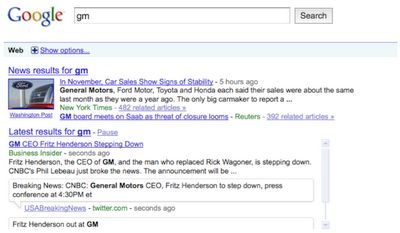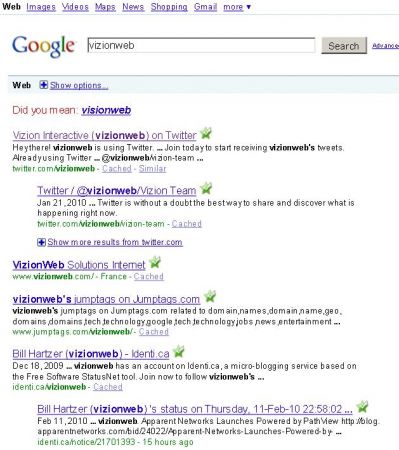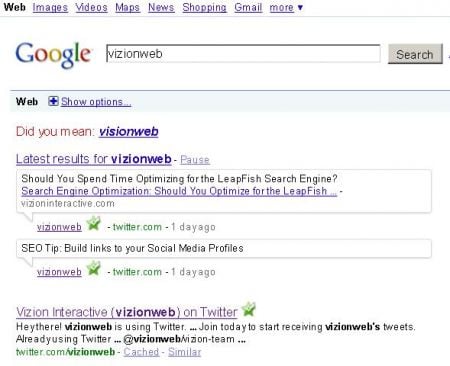Back in December 2009, Google began showing the integration of the real-time web in the Google organic search results.
Google told us that their goal is to strive to bring us “the freshest, most comprehensive and relevant search results over an ever expanding universe of content on the multitude of devices” we “use to access it.” They added real-time into the search results like this:

I would compare this move to Google Universal, where they algorithmically add news, images, blog results, music (if it’s related to music), and video into the natural search results. Somehow, algorithmically, Google adds these features into the natural search results. You have probably noticed that sometimes they display it in the search results (for certain keyword phrases) and they show don’t display the Universal search results for other keyword phrases that you search for at Google.com.
As a search engine optimization pro, I have been intrigued by this part of the search engine algorithm. In other words, I have tried to figure out how to literally force Google to display the real-time web (the “Latest results for”) for a particular keyword or keyword phrase.
Well, I am happy to be able to tell you that I have “cracked the code” so to speak, and am able to now “force” Google into displaying the “Latest result for” a particular keyword or keyword phrase. In other words, if the “Latest results” is not currently showing for a keyword phrase in the Google search results, I am able to force Google into displaying the “Latest results” for a keyword or keyword phrase of my choosing.
Let us take a look at an example of what I am tattling about. As an example keyword, let’s use the phrase “vizionweb“, as in our Vizion Interactive Twitter ID, @vizionweb. If you look at the following search result, you will see that there are no “Latest results for vizionweb”.

But, after a particular period of time (which I won’t reveal right now), you will see that a search for “vizionweb” does, in fact, show the “Latest results for vizionweb”.

I have tested this with several other keywords and have been able to use my technique in order to force Google to display the “latest results for”, display the real-time web, for a specific keyword phrase of my choosing.
Why would you want to do this?
Frankly, I can tell you that doing this, pressuring Google to show the “latest results for” a certain keyword phrase when Google currently does not show the real-time web for that search phrase, is advantageous. I have currently not tested it specifically, but most likely if the real-time web is displayed in the Google search results for a particular keyword phrase then the Click-Thru Ratio (CTR) is going to be higher than normal. It just stands out more, and more people are going to click on it, especially if it was not previously showing. And if you are able to control the content that shows up in that little real-time internet box, you may be able to get more relevant visitors to your internet site.
So how did I do it?
What is the secret sauce? Presently, controlling the Google search results in this way calls for a combination of certain types active social media accounts from certain social media websites that are connected together properly. I am not going to specifically address which accounts and which social media internet sites are participating, but you may be able to figure it out if you take the time to look. Moreover, revealing exactly what it takes is not just not in my best interest right now, especially because clients are paying for things like this.
What I will say, though, is that Google, just like all of the different search engines out there, does have its defects and holes so to speak, and there still are things that a SEO professional like myself can do to drive more traffic to your website.